Introduction to Rest Assured Framework
In today’s API-driven development landscape, testing RESTful APIs is a critical aspect of ensuring application functionality and performance. The Rest Assured framework is a powerful and easy-to-use Java library that simplifies testing REST APIs. Leveraging a fluent API allows developers to write readable and maintainable tests. By the end of this blog, you will have a solid foundation in setting up the Rest Assured framework and using different methods to pass payloads in your API tests, making them more readable and maintainable.
Creating Payloads in Different Formats
- POJOs
- HashMap
- JSON Object
- External File
Setting Up Your Project
Before diving into the code, ensure you have the necessary setup:
- Java Development Kit (JDK): Ensure you have JDK 8 or higher installed.
- Maven: Rest Assured is available through Maven, so you need to have Maven installed.
By the end of this blog, you will have a solid foundation in setting up the Rest Assured framework and using different methods to pass payloads in your API tests, making them more readable and maintainable.
Create a new Maven project and add the dependencies to your pom.xml file.
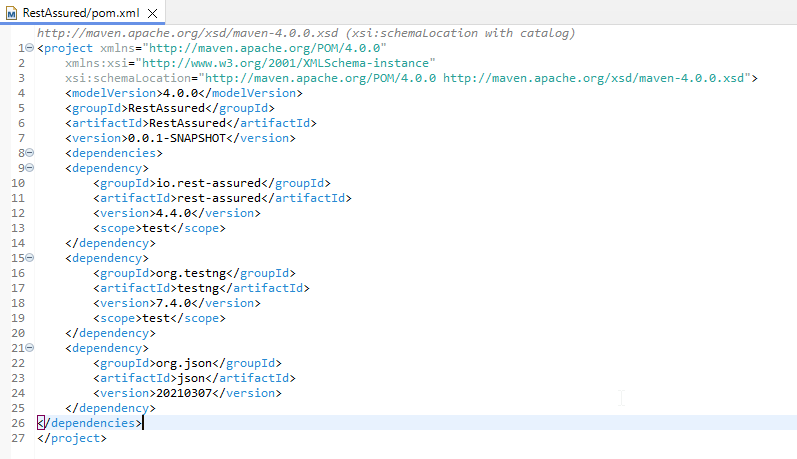
Library Uses
- REST Assured Library: Simplifies testing and validating REST APIs by providing an easy-to-use syntax for sending HTTP requests and verifying responses.
- TestNG Library: Facilitates efficient test configuration, execution, and reporting with features like annotations, parallel testing, and integration with CI tools.
- JSON Library: Enables parsing, serialization, validation, and manipulation of JSON data for seamless data exchange and processing.
Using POJO Classes
Plain Old Java Objects (POJOs) are simple Java classes representing data. In the context of Rest Assured, POJOs are used to serialize request bodies and deserialize response bodies. Using POJOs makes tests more readable and maintainable.
Creating POJO Classes
Suppose you’re testing an API for managing users. You might need a User POJO class to represent user data.
Here is a simple example of a ‘Pojo_Post’ POJO:
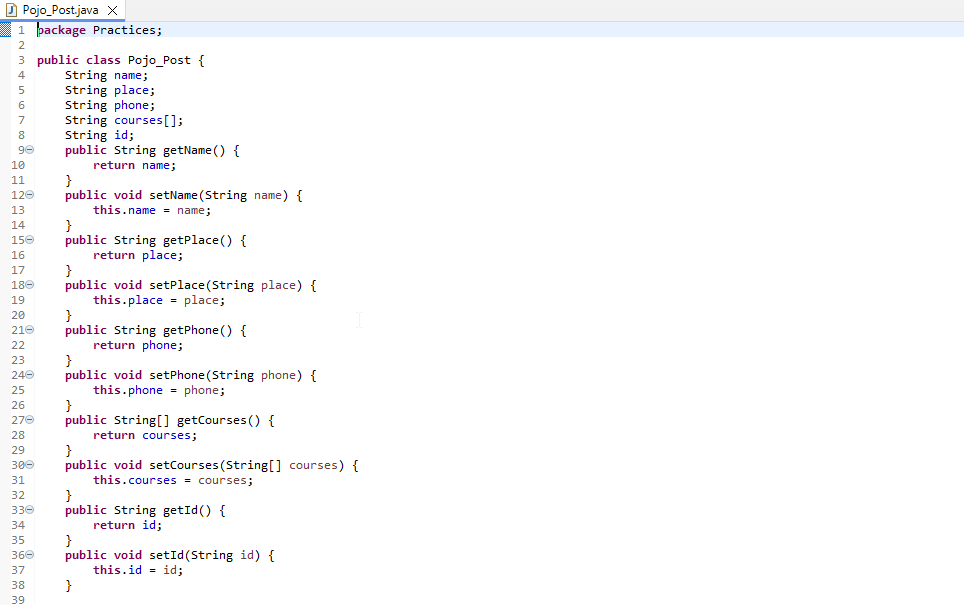
Testing REST APIs Using POJOs in Rest Assured
Now, let’s write a test to demonstrate how to use the ‘Pojo_Post’ POJO with Rest Assured.
Here’s an example test using TestNG:
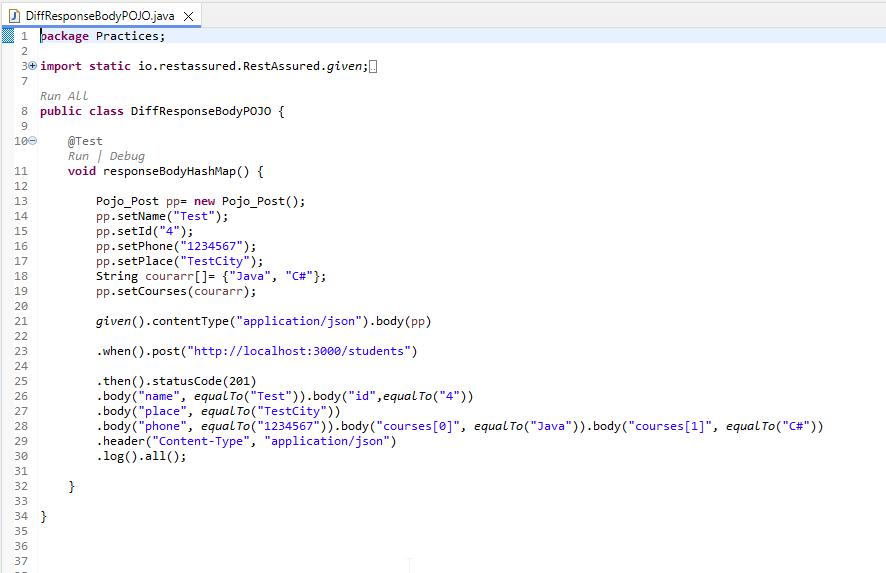
Using HashMap
For simple payloads, a HashMap can be used to create JSON objects dynamically. This method is flexible and doesn’t require a predefined class. Here’s an example:
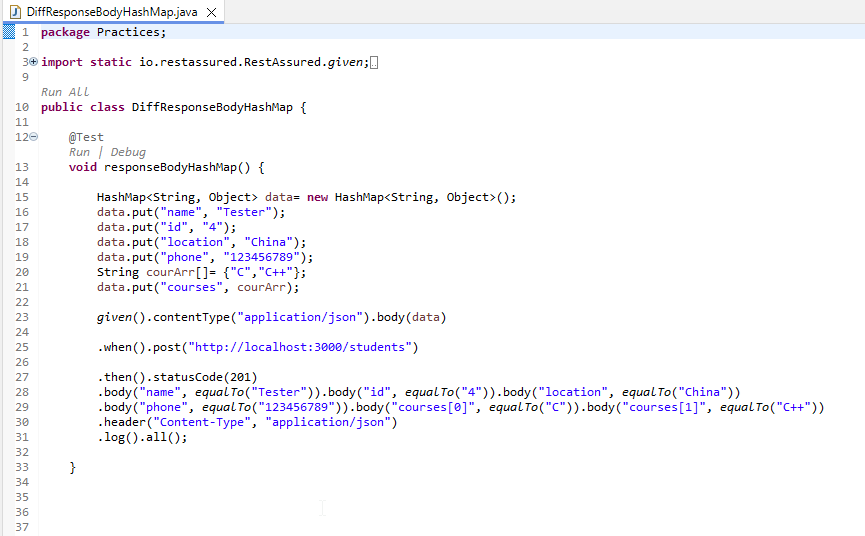
Using JSON Object
For creating payloads without predefined classes or dynamic needs, ‘JSONObject’ from the ‘org.json’ library can be used. This method is useful for directly constructing JSON strings. Here’s an example:
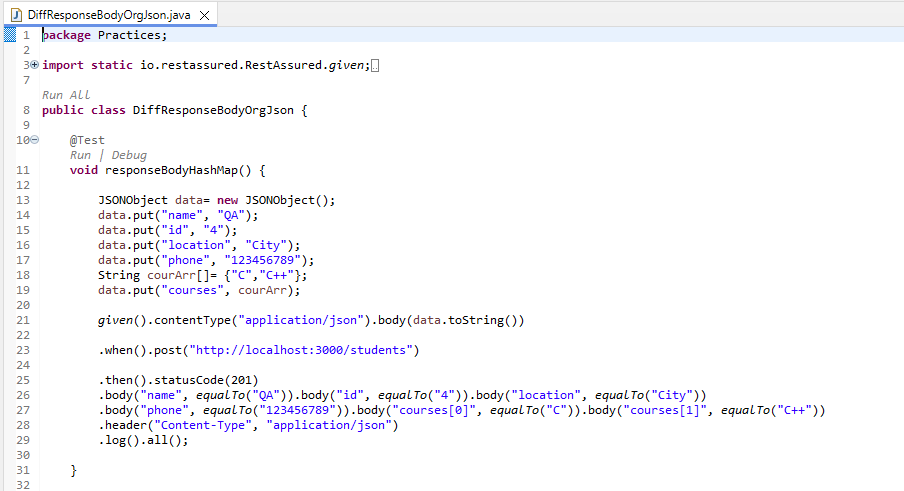
Using External File
Storing JSON payloads in external files is useful for managing large or reusable payloads. You can read these files into your tests, keeping your code clean and separating data from logic. Here’s an example:
Sample JSON File (body.json)
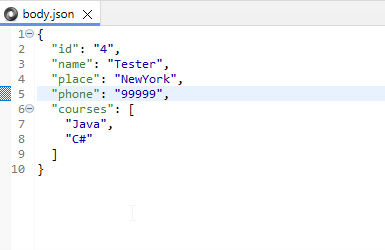
Reading JSON File and Testing
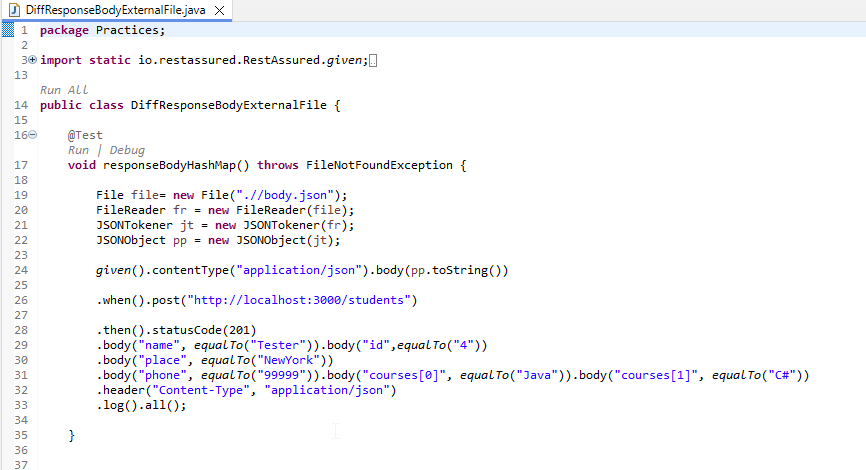
Conclusion
In this first part, we’ve introduced the Rest Assured framework and demonstrated different ways to create request payloads using POJOs, HashMap, JSON Object, and external files. We also covered how to set up a Maven project for Rest Assured and wrote simple test cases for each method. In the next part, we’ll dive deeper into more advanced features of Rest Assured, such as handling authentication, complex assertions, and integrating with CI/CD pipelines.

